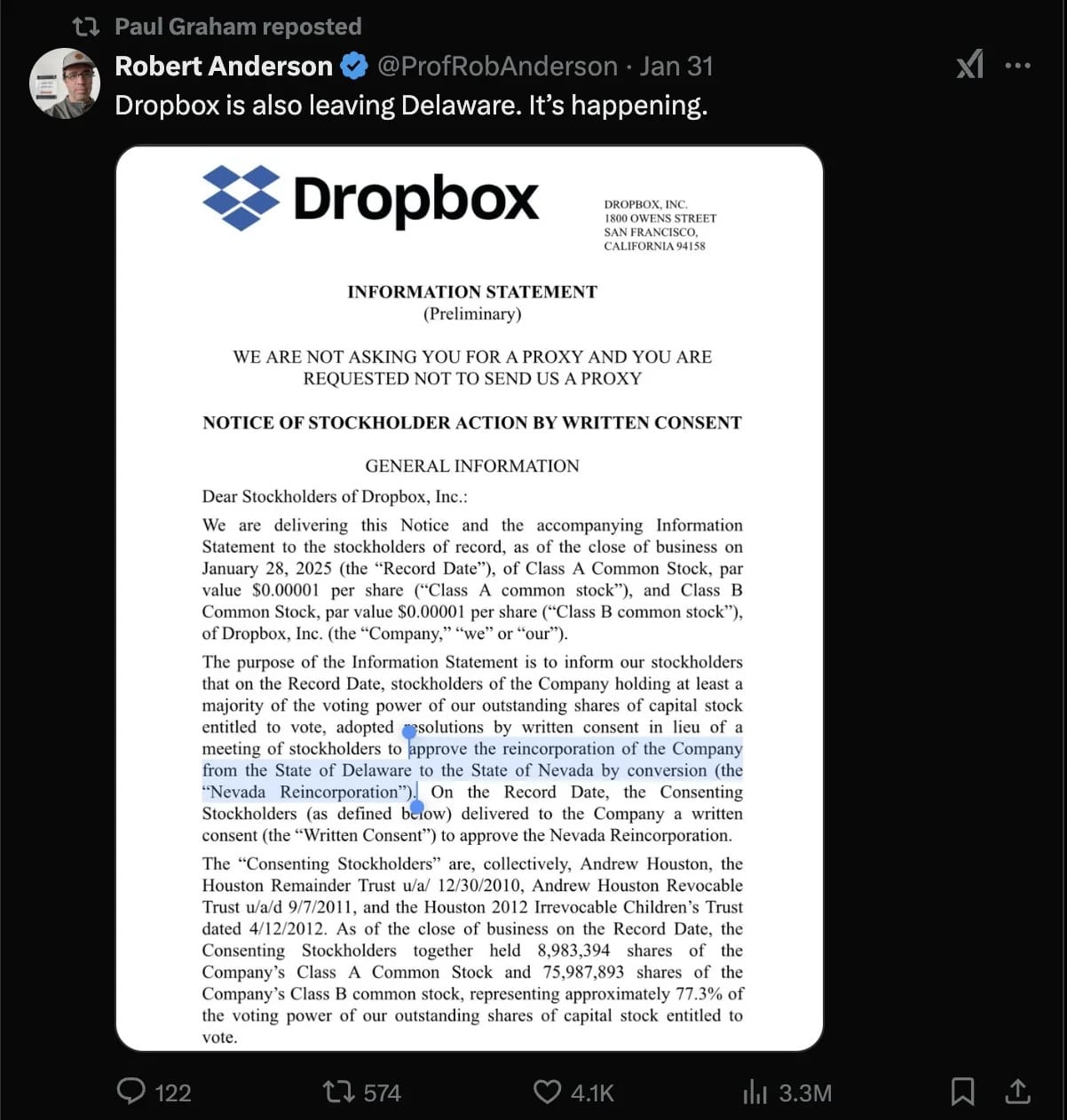TL;DR: Dropbox is ditching Delaware for Nevada, and they’re not alone. Big names like Elon Musk and Meta are eyeing moves too. Delaware’s once rock-solid reputation is now in question.
Dropbox is the latest in a growing list of companies moving their corporate registrations out of Delaware.
The shift has raised eyebrows, with some seeing it as the beginning of a trend and others dismissing it as reactionary posturing.
But what’s actually happening?
The Delaware Advantage—Now in Question
For decades, Delaware has been the go-to state for corporate registrations.
Over 60% of Fortune 500 companies are incorporated there, largely due to its business-friendly legal system, specialized Court of Chancery, and predictable corporate governance laws.
The main draw has always been the stability and reliability of Delaware’s courts—until now.

The recent ruling against Elon Musk’s $56 billion Tesla compensation package has made some CEOs uneasy.
A Delaware judge voided Musk’s record-breaking payout, even though Tesla shareholders had approved it.
The ruling reinforced that the state’s courts won’t just rubber-stamp whatever executives and boards agree to, which has spooked certain high-profile leaders.
CEOs Are Worried About Losing Their Golden Parachutes
Executives are now asking themselves: if Musk’s payday can be denied despite shareholder approval, could the same happen to them?
The Delaware courts are signaling they won’t blindly defer to corporate boards, especially when it comes to extreme executive compensation.
This shift is seen as a form of "judicial activism" by some business leaders who were comfortable with Delaware’s historically pro-business stance.
The concern is that future rulings could set new precedents, making it harder for executives to justify massive compensation packages or questionable governance decisions.
Dropbox is moving to Nevada, which has long positioned itself as an alternative to Delaware.
Several big companies are rethinking Delaware as their corporate home.
In response, Delaware lawmakers are trying to keep businesses from leaving. A new bill aims to limit shareholder lawsuits and protect executives from legal challenges, hoping to make the state more attractive again.
This isn’t just about Dropbox—more companies are weighing their options.
Nevada offers strong liability protections for directors and officers and has a more hands-off legal approach.
The state markets itself as being more deferential to corporate management, reducing the risk of shareholder lawsuits or judicial interference.
With Dropbox making the switch, it’s likely that other companies—especially those with high-profile executives or controversial compensation structures—are at least exploring similar moves.
Y Combinator and the Startup World Are Watching
Gary Tan, the president of Y Combinator, has hinted that YC-backed startups are also reconsidering Delaware as their default choice.
If YC shifts its recommendations, it could significantly impact early-stage startups, which often incorporate in Delaware by default.
We've been looking at it
— Garry Tan (@garrytan) February 1, 2025
For now, this isn’t a mass exodus. But the message is clear: Delaware’s reputation as the safest, most predictable choice for incorporation is being challenged.
If the trend continues, it could reshape how companies approach corporate governance in the coming years.



